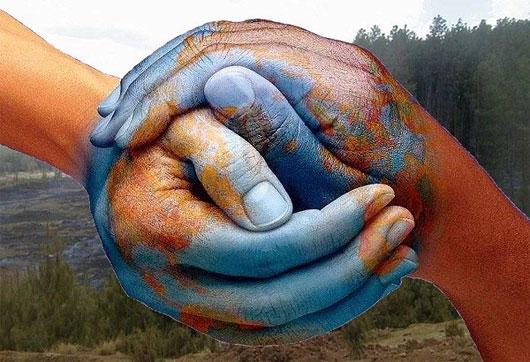The secret of science about the happiest people in the world
The dream of being the happiest person on the planet will not be too far away when you apply the following science tips .
In a US statistic, only about 10% of people are considered happy. These people are like many others, they are not very special. But they have secrets to own a happy, happy life.
Learn about those secrets and what we can learn to contribute to making life better .
1. The power of relationships
What happens when you observe the lives of happy people, that is money, fame, wisdom .? Through analysis, scientists have shown, the solution to that question is the power of relationships.

Experimental research conducted on 1,600 Harvard students has shown that. Social support - the power of relationships is a predictor of happiness more accurately than any other factor such as score, family income, gender, age or race.
The correlation between happiness and social support is 0.7. This figure indicates that the more social support you get, the happier you will be.
And yet, according to Grant studies (research throughout life), experts discovered that 'the ability to love and be loved is the only factor that makes people happy at age 80'. So, from today on, invest in your friends' relationships, you will surely get 'sweet fruit' from them.
2. Work busy
Right now, there must be many people who are tired and want to rest. That's true, but there is the fact that knowing too much resting becomes a burden that makes life less happy.
Psychological studies in humans all come to the same conclusion: keeping yourself busy at a moderate level is a secret door that opens a happy life.

Keep yourself busy but smile still on your lips
To own this 'happy secret' , experts recommend that we actively promote our strengths and strengths every day. An investigation of 577 volunteers who requested to perform their forte each day for a week proved the result.
Accordingly, all volunteers feel significantly happier, signs of depression decline and this feeling lasts more than a month later.
3. 'Don't do things you don't like!'
Karl Pillemer, an expert at Cornell University (USA), conducted an interview on happiness with nearly 1,500 people over 70 years old. As a result, most of them made a comment: 'To be happy, don't do things you don't like!'.

Doing things I hate is the source of regret, regret later
In '30 Lessons for Living: Tried and True Advice from the Wisest Americans' , scientists once again confirm the correctness of the above advice. They conclude that wasting time on self-disliking jobs causes regret and unhappiness for each person, and only when people are old can people realize that fact.
That is why many young people still accept to do the work themselves do not like every day, every hour but do not realize their unhappiness.
4. Happiness does not mean having everything
Happiness is a vague phrase, still recognizable, but not everyone understands it properly. Money, fame, wisdom . not all is happy.
According to scientists, happiness is simply that you get what you want and need, whether using money or being given to others.

Money.

Powerful.

Wisdom.

. is not synonymous with happiness.
On the other hand, happiness does not completely mean what is called 'meaningful life' . People find that people who 'get' from others will be happy, while those who 'give' travel tend to own 'meaningful life'. Both things are important to people and we need to balance them. Not only are people always happy, people need to live a meaningful life.
The reason is that 'meaningful life' helps us stay healthy and live longer. Research by Tohoku University Japanese scientists for 7 years over 43,000 adults (40-79 years) has proved it. Specifically, those with Ikigai (meaningful life in Japanese) will live longer than others about 7 years.
5. Know how to give it just right
Everyone knows volunteering, helping people around will make themselves feel happier. But not everyone knows how to 'dose' volunteering to be happiest.

The number given by scientists is 100 hours / year, equivalent to 2 hours / week. Volunteering, helping too much will be counterproductive, causing people to become more anxious and stressed.
Since the 1960s, statistics of over 2,000 Australians have demonstrated that people who volunteer for about 100-800 hours a year will have happier lives than volunteers who have too little or too many numbers.
- Why are the Danish happiest in the world?
- Australia - The happiest country in the world in 2014
- How happy is Vietnam in the world in 2018?
- The secret to helping this archipelago become the happiest place in the UK
- Who is the happiest human being in life?
- Bhutan - The happiest Buddhist country in the world
- On the occasion of International Happiness, visit the happiest country in the world
- Science finds the exact number of hours of sleep every night making you the happiest
- June 20 - The happiest day of the year
- The secret behind the happiness index is high in Bhutan
- Why are the richest countries not always the happiest in the world?
- Why is Norway voted the happiest country in the world?
 'Fine laughs' - Scary and painful torture in ancient times
'Fine laughs' - Scary and painful torture in ancient times The sequence of numbers 142857 of the Egyptian pyramids is known as the strangest number in the world - Why?
The sequence of numbers 142857 of the Egyptian pyramids is known as the strangest number in the world - Why? History of the iron
History of the iron What is alum?
What is alum?